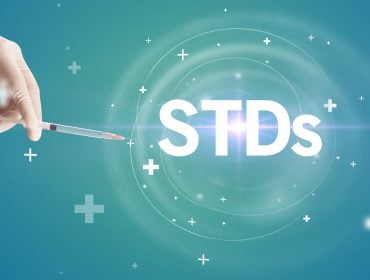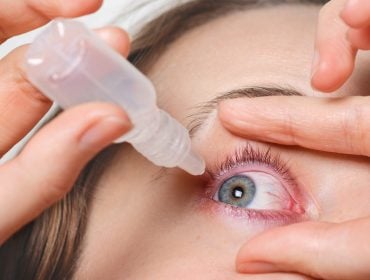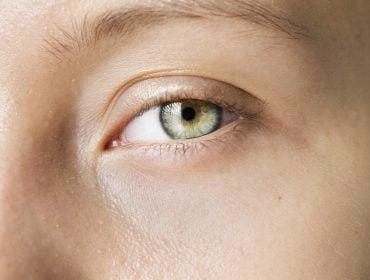Anal Herpes
Perhaps you’re feeling a little funky in the butt. You may have bent over in front of a mirror to asses (lol) the damage, but, to your surprise, faced a cluster of painful white-ish ulcers.
It’s like when you go to your fridge and expect to find your regular stock of foods, but instead, find a self-invited town of stinky old mold. You had hopes of what to see, but now, while sifting through invaded Tupperware, have to wonder where your shortcomings occurred.
If you think you’re the first one to be startled by your moldy discovery, we’re here to tell you that you’re not. Honestly, it happens to more people than you think. And, lucky you, you have friends at STDcheck.com that can give you a little bit more insight about your situation.
Welcome to Anal Herpes. It’s a small hilly sub-town of Genital Herpes. They’re very similar and have a well-known rivalry based on which one is worse. The towns originated from the same family of viruses (herpes), which are typically split up as HSV-1 (oral herpes) and HSV-2 (genital/anal herpes).
Both types cause sores, but HSV-1 generally likes the northern mouth area and HSV-2 likes the southern genital/anal region of the body. Genitals include the vagina, penis, scrotum, and anus but usually, genital herpes doesn’t reach the anus unless the person partakes in anal sex with an infect penis. This blog post will focus on anal herpes.

Anal Herpes Symptoms
While anal herpes doesn’t always send out signs that it moved in, a few red flags that can appear and indicate it has signed a forever-long lease and settled in rent-free. Many times, herpes manifests as red or white puss-filled blisters. With anal herpes, as the name suggests, the ulcers will develop around the anus. They can be painful, itchy, and may cause changes in bowel habits. Because they tend to rupture, scabs will form over them until the healing process (and breakdown) is over.
Anal herpes Symptoms include sores develop in the following stages:
- Tingling or itching sensation in the affected area – this usually happens in the first 12-24 hours
- Blisters form and fill with liquid
- Blisters open and turn into sores
- Ulcers turn into scabs and heal
This sounds pretty painful, right? There is good new though. It gets better! The first outbreak is usually the worst and then it eases out.
How do you get it, and how to handle anal herpes symptoms?
In order to explain how you get it, we need to first examine how herpes spreads.
When herpes sets up shop and integrates itself into the spinal rope in the lower back, it usually breaks out in the ulcers as described before, but it can also just “shed” off of the skin. This stage in herpes is usually unnoticeable and is “herpes viral shedding.” The virus is now super active on the surface of the skin. This means that ulcers or not, herpes is contagious.

Now, the following are a few real-world possibilities of how to get or spread herpes:
Because sex involves sharing a lot of intimate juices and close contact with skin, intercourse spreads herpes onto a once foreign body and most likely to the genital region.
Another easy way for herpes to spread is through active sores. When there are sores present, their germs spread to others through direct or quick indirect contact. Kissing, sharing drinks and utensils, performing oral, etc. are all actions that make the dispersal of germs/herpes highly possible.
Now, if a male has an infected penis (genitals), partakes in anal and doesn’t use any form of barrier protection, then chances are that the receiving person has gotten anal herpes. If the person receiving has anal herpes, partakes in anal, and the penetrator doesn’t use protection, the risk is high that he will contract genital herpes.
Remember: there are not always signs that you or your partner have anal or genital herpes, but the virus can still spread.
Can you get rid of it? Are there serious problems?
After the first outbreak, the virus will settle into your nerve cells. This means, unfortunately, once you have herpes, it’s with you till the day you die. Unfortunately, there currently isn’t a cure for genital herpes. At any rate, there is medication to make it manageable and less likely to pass on to a sexual partner.
It’s important to test regularly so you can catch it before spreading it further, especially since herpes doesn’t always give any obvious symptoms. Other than the painful sores, which don’t damage any critical bodily function, there aren’t any serious problems.
Once you know you have it, there’s a definite upside to the ‘no obvious symptoms’. This means it’ll go dormant and not bother you with its painful sores. Typically, the ulcers are triggered by external factors such as stress, illness, or sun exposure. Even though this last one isn’t a likely cause due to the anus being “a place where the sun don’t shine.”
In order for treatment to work well, testing is necessary to determine if the ulcers are because of herpes or due to a different infection. It is important to know exactly the cause of the ulcers so medication to help the root cause otherwise, it won’t help. Testing for herpes is done through a blood sample that is sent to a lab to determine the cause of your symptoms.
To help manage spontaneous outbreaks, antiviral therapy can do the job. This helps lower the intensity of the symptoms and reduces the duration of the sores. If you’re prescribed a long-term use of
Secure and Confidential
STD testing services
The fastest results possbile - available in 1 to 2 days
antiviral medication (for those that have outbreaks constantly), it is called suppressive therapy. Both reduce the risk of passing the infection to a sexual partner and allows one with anal herpes (or herpes in general) to live a normal life. It is important to remember that antiviral therapy only reduces the risk of spreading it when the medication is currently being taken.
In the case of severe anal herpes, intravenous (IV) antiviral therapy will be necessary to treat the symptoms. This means the antiviral medicines are injected directly into your bloodstream through a needle into a vein. This will allow the medication to bypass the digestive system and 100% absorb into the bloodstream.
After a while, herpes outbreaks around the anus will decrease. You may decide to end suppressive therapy and being using antiviral medicines again when a new outbreak occurs.
Who does it affect?
The Centers for Disease Control (CDC) stated that in 2013 more than 24 million Americans had HSV-2 and projected that each year an additional 777,000 Americans would be diagnosed. At 24 million, that means 1 in 13 people had genital herpes in 2013. And, according to their projections, that means about 30 million have it now. Which is roughly 1 in 10 people. That’s a butt load of people!
It is important to disclose your status if you’re herpes positive before having sex with a new partner. Herpes is contagious and most likely will transmit to another person even if the lesions are not present.
It is not possible to have fully consensual sex if both partners are not truthful or completely aware of each other’s status.
A great way (and pretty much the only way aside from abstinence) to avoid unknowingly passing anal herpes to your sexual partner(s) is getting tested regularly!
Anal Blisters
Anal blisters are not a serious condition but they can be painful. They are caused by the herpes virus and you can get them from sexual contact or by coming into contact with someone who has the virus.
Anal Blisters Introduction
Anal blisters are not the same as anal herpes, anal warts, or anal cancer.
Anal herpes is a sexually transmitted disease (STD) that occurs when the HSV-1 or HSV-2 virus enters your body through your skin, mucous membranes or breaks in your skin and travels to the nerves near your spinal cord. Once there, it can cause healing blisters and painful sores on your genitals and rectum — with some cases resulting in swollen glands or fever. If left untreated, this may develop into recurrent infections affecting the lining of your pelvis and colon causing pain similar to having hemorrhoids but more severe.
What causes anal blisters?
Anal blisters are caused by any of the following:
- Anal sex
- Anal sex toys, such as butt plugs and dildos
- Fisting
The most common cause is having anal sex with someone who has a cold sore or genital herpes. This can transmit the virus to you. The symptoms of an infection include pain, itching and inflammation in your rectum area.
What are the symptoms of anal blisters?
The symptoms of anal blisters and herpes are similar. They include:
- itching
- pain
- swelling
- redness
- blisters
They can appear the size of a pencil eraser, or smaller. They can ooze liquid or pus, and sometimes crust over. You might notice one or several sores in your anal area, though it’s not uncommon for them to appear at different times on different days.
If you see any of these symptoms in your anus, it’s important to get tested as soon as possible!
How are anal blisters diagnosed?
To diagnose a case of anal blisters, your doctor might order one or more of the following tests:
- Blood test. A blood test can confirm if you have herpes. The results usually come back within two to three days.
- Swab and culture. Your doctor will take a swab of the affected area and send it for testing at a lab (or culture). This is done to confirm whether you have HSV type I or type II, which are both herpes viruses that cause genital sores. The results will typically be available within five days but may take up to two weeks if they need to be sent elsewhere for testing.
- Anal swab test. If you’re experiencing symptoms of anal irritation but don’t have any visible sores, your doctor may recommend an anal swab test for STDs (sexually transmitted diseases), also called STIs (sexually transmitted infections) including chlamydia, gonorrhea, syphilis, HIV/AIDS and hepatitis C virus infection as well as HPV infection which causes genital warts or cervical cancer in women who have sex with men only..
How is it treated?
Anal blisters may be treated with topical creams, antibiotics, antiviral medications and/or antiviral drugs.
What type of specialist treats anal blisters and herpes?
An anal blister occurs when an open sore is exposed to feces and other bacteria. Anal blisters are usually caused by the herpes simplex virus (HSV), which primarily infects the genitals but can also spread to other areas of the body.
The treatment for anal blisters depends on whether or not they are a result of HSV-1 or HSV-2. The former tends to cause more mild symptoms, while the latter is more likely to cause painful ulcers that last longer and create sores that take longer to heal. In addition, anal blisters present themselves differently based on whether you’re infected with HSV-1 or HSV-2:
- If you have HSV-1, you’ll notice clusters of small rashes in your anus from time to time; these may be accompanied by itching or burning sensations around your anus as well.
- If you’re infected with HSV-2, then your first outbreak will probably appear as painful patches scattered across your anus; whereas later outbreaks might manifest as small blisters in this area as well–though they may not look exactly like those formed by its counterpart (because they tend not be clustered).
After being tested at one of our labs, the medical staff on site will provide the best treatment available.
Anal blisters need to get treated right away.
Anal blisters can be contagious. You can get them from having sex with a partner whose genitals have been affected by herpes simplex virus (HSV), the virus that causes genital herpes. It is also possible to contract HSV-1 or HSV-2 infections in the mouth and anus, which may lead to anal blisters.
The good news is that although outbreaks of these infections can be painful, they are usually not serious health risks for most people who live with them. It’s best to see your doctor if you notice any signs of an outbreak so that he or she can prescribe treatments appropriate for your situation.
Reduce the risk and learn more!

Because STIs like HSV-2 pass during sexual contact, you can lower your risk by practicing safe sex. Wear a condom or another form of barrier protection during every sexual encounter, including anal or oral sex. Also, being in a mutually monogamous relationship significantly reduces your chances of contracting anal herpes. Because you are cutting down on the amount of different sexual partners, you will (hopefully) have more knowledge over what your partner may or may not carry.
In the end, even safe sex still has a chance of passing on an STI. Herpes can shed from the base of the genitals and not just the penis. Therefore the condom may not cover the entire infected area.
The number one best way to avoid getting an STD is abstaining from sex altogether.
But we understand, that’s not always what you want to hear when you’re looking to touch butts. We just want to acknowledge there are options.
Find out more about testing for anal herpes at our website and find a lab near you!
Medically Reviewed by J. Frank Martin JR., MD on August 1, 2022
Secure and Confidential
STD testing services
The fastest results possbile - available in 1 to 2 days

Tagged
Categorized As
Author: Alexa Amador
Alexa graduated from a university in Atlanta with a B.A. in English and joined the STDcheck.com team in 2018. Before joining, she marketed and developed her own blog while working freelance for leading businesses. Having a robust skill set of research, writing, and editing has kept her busy and driven throughout both her academic and professional careers. Alexa became entangled in the sexual health business after coming from not only "abstinence-only" schooling but where the reproductive anatomy chapter was literally torn from her textbook. She realized how irresponsible it is for people to encourage ignorance about sexual health, especially to younger audiences, and so her passion for becoming part of the solution and educating the masses was born. When not writing for Exposed, Alexa enjoys taking vacations in the mountains with a good book and her dog, Nova.




